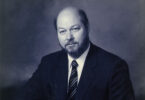As a longtime PRSA volunteer at the National and Chapter levels, I’ve taken part in a fair number of debates over whether or not to broaden the criteria for PRSA membership. Today, we’re approaching the tipping point: In November, the 2009 General Assembly will be asked to approve a more general definition of who is eligible to join the organization. It’s one of several recommended changes to PRSA’s Bylaws that will be put before the group at that time.
Having served on the Membership Committee, the National Board of Directors and the Bylaws Rewrite Task Force, I’ve listened to members, spent time examining association trends and consulted with PRSA’s professional staff. I’ve determined that there are so many reasons to broaden PRSA’s membership guidelines, that I would just ask one simple question … “What are we afraid of?”
PRSA’s mission is to advance the profession and the professional. There is no limit on the types of professional our mission encompasses, nor on where geographically those professionals practice their craft. The programs and opportunities offered by PRSA help all communication professionals … senior, junior and new professionals; specialists and generalists alike. We should open our doors to all — assuming they have, or have had, a job in public relations that requires a substantial amount of time performing some combination of 16 different skills that include marketing communications and institutional advertising.
This is not just about creating a larger, richer or more diverse society. Every day, our profession faces new challenges from people who don’t understand what we do. Why wouldn’t we want to offer learning opportunities to all, so that challenges come from informed positions, rather than uniformed?
Our profession has also changed dramatically over the years and that evolution will continue. A review of PRSA’s National leadership shows that only about 15 percent of those individuals have the words “public relations” or “PR” in their title or company name.
Too, there is a need assert and maintain leadership and fluency in new communications channels. Social media is the latest opportunity for the public relations profession to expand its scope of influence; accordingly, it’s the most popular professional development topic offered by PRSA. Yet someone who spends a substantial amount of time in social media currently does not qualify for membership.
Finally, when a person joins PRSA, they sign a statement agreeing to abide by our Code of Ethics. As we continue to work to educate the general public about the ethical practice of public relations, it seems even more important to engage a broader range of communications professionals in upholding the tenets of that code.
So, why put related communications professionals through hoops in order to allow them under our tent? We should embrace anyone who is interested in learning about our profession, help them gain the knowledge they need to be better professionals and enable them to advocate for what we do day in and day out.
Our membership is already open to professionals who work at companies that sell important services to the public relations industry, so the level of participation from those types of companies isn’t likely to change dramatically. And, their participation in our organization today further illustrates my point: While not public relations practitioners, per se, these individuals volunteer their time every day — often in leadership roles — and provide essential lifelines to the companies who support PRSA educational programming, conferences and publications.
The recommended Bylaws change seeks to broaden the criteria for membership so that we may welcome those interested in public relations, as well as those who work into the field, under our tent. I, for one, look forward to greeting them as members and growing our active membership to include more and more communications professionals who advocate daily for the ethical practice of public relations and communications.
Mary Deming-Barber, APR, Fellow PRSA, is an Immediate Past National Board Member and a volunteer on PRSA’s Bylaws Rewrite Task Force.







Wow–talk about diluting the brand!! There may be a happy medium between PRSA’s current, more exclusive membership standards and throwing open the gates to John Q. Public and friends. This is definitely an interesting issue.
What are we afraid of? PRSA becoming just another communications organization. Many of us are very proud of our PRSA membership–because of working dilligently both to qualify and maintain membership status, and because of the caliber and professionalism of our fellow members.
Dilute the standards for PRSA membership–to include those on the periphery, the merely-curious and those seeking a prestegious organization to pen on a resume–and you’ve got me thinking … Why am I forking over $360/year from my personal budget when there must be a better deal out there!!???
Mary makes some interesting points, but I’m not convinced that “opening our tent” to individuals in other professions would serve a constructive purpose other than to increase PRSA’s revenue stream. After all, isn’t PRSA’s primary mission to represent the interests and serve the needs of PR practitioners and advance the profession as a whole? Admitting and representing other professions could give rise to conflicts of interest, over-burden PRSA’s infrastructure and diminish the association’s effectiveness in providing services and programs for PR professionals. As for those who wish to enter public relations, admitting them to the association before they actually work in the field is like putting the cart in front of the horse. Unless there’s some benefit or advantage that I’m not seeing, I hope the General Assembly does not vote in favor of broadening the criteria for membership.
Geez. Article 1 in the Bylaws already seems very general. I strongly oppose broadening membership to the point that it means nothing. Perhaps we should go back to the basics and revisit the definition of public relations to find that point of no return.
Regarding the comment, “Yet someone who spends a substantial amount of time in social media currently does not qualify for membership.” The way I read Article 1b), they could qualify, especially if they were using social media as a tactic to strategically communicate with external audiences versus just using it as a random tactic.
I responded to Ms. Barbers comments on Governance eGroup, but since they are also on this public blog, I figure I should share my comments on the public blog as well…
First the disclaimers. I respect all the hard work that the bylaws task force has put into the process. I respect the service and years of hard work Ms. Barber and those on the task force have given the Society and the profession. That being said, I respectfully disagree with them with regards to broadening the membership.
I agree with Mary on one key point. “PRSA’s mission is to advance the profession and the professional.” The profession is the key thing here. It’s the profession of public relations.
Yes, what public relations encompasses as broad and there are more than 400 different definitions. But Public Relations is not the advertising industry. Public Relations is not marketing (how long have senior leaders argued PR should not report to marketing?). Public Relations is not Business Development. We use those tools and work closely with skilled professionals in those industries. Yes, they can be a key part of our PR effort, but they are not PR. That’s what our hard-working educators teach college students.
Yes, some of our members do some of these things for part of their work. But the needs of those professions are different. By broadening our services to meet those needs we will dilute the services and benefits we can provide PR people.
As Ms. Barber says “This is not just about creating a larger, richer or more diverse society. Every day, our profession faces new challenges from people who don’t understand what we do.” I don’t want folks to say someday- oh you’re advertising because your national chair elect is the head of an Ad Agency.
Someone else made a key point. The number of public relations specialists more than doubled, from 98,240 to 225,880 in a recent study.
PRSA’s professional membership is around 22,000 people. That is 10% of those who identify as public relations specialists. Instead of bringing in advertising, marketing and biz dev, we should focus on making ourselves more attractive to the 90% of PR professionals that are not yet a part of PRSA. I try to help out where I can. Do I claim to have the answers- no. But I do not agree with this proposal to dilute our brand and potentially dilute our services.
Let’s work together to maintain PRSA’s vibrant culture and great professional development, advocacy and networking. But the answer to that is not by diluting who we are.
I also respectfully disagree with the statement that social media professionals can not join the PRSA. If we have been turning them away, there are ways to fix that. As I stated on another thread: Article I of the PRSA bylaws states “To be eligible for admission as a member, an individual must devote a substantial portion of time to the paid professional practice of public relations.”
This is pretty vague and the word “substantial” already gives us a lot of wiggle room. 10% of my paycheck is *substantial* to me. Additionally, in the application for membership, we give broad examples of activities that “qualify”. Since social media is already considered an active part of PR and most professionals are using it and college PR courses are teaching it, I would argue the bylaws as written already covers it. PRSA could amend the membership application to spell it out, but you do not need a bylaw change to do so.
What am I afraid of? That PRSA will dilute its focus and not best serve the needs of the 22,000 members and 200,000+ PR pros by losing its focus and serving too many competing interests.